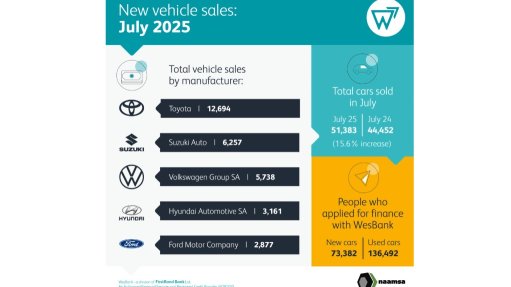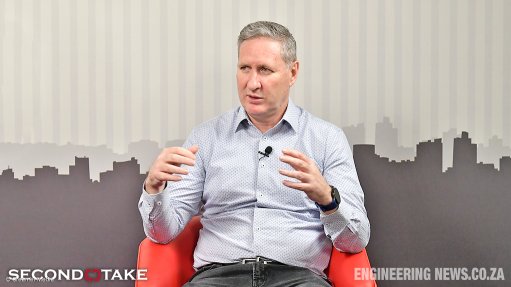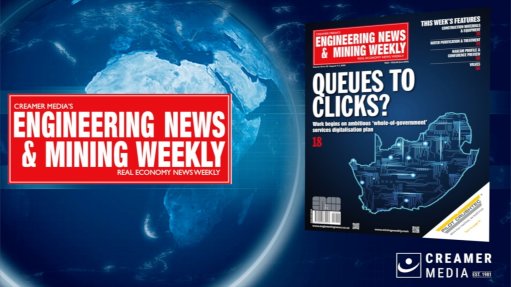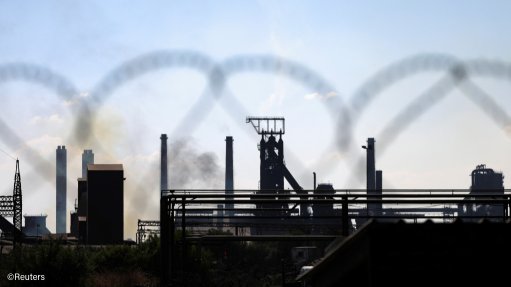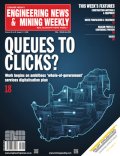Industry 4.0 tech adoption requires forethought


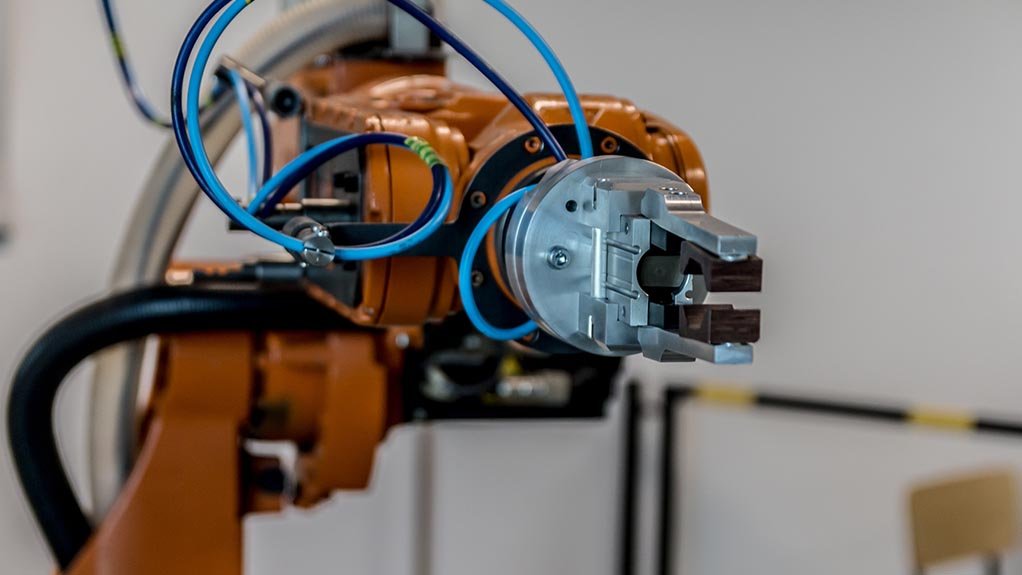
THE INTERCONNECTEDNESS OF ALL THINGS connectivity forms the foundation of industrial control and automation
LENDING AN ARM Semi- and fully-autonomous applications are already replacing repetitive tasks and jobs
For the successful adoption of Industry 4.0 technologies, several considerations must be taken into account from both a technology and human standpoint, says technology solutions provider Dwyka Mining Services CEO Jamie van Schoor.
“Changing mindsets to embrace technology adoption is no easy task, especially when Africa is leapfrogging years of learning to compete head-on with mature global mining markets, such as Australia,” he says.
He notes that mature markets have had the time to adapt to the pace of technology evolution and to develop the required skills and structures to embed and support these efforts.
From a technology perspective, Van Schoor says four key aspects should be considered, which include securing stable and sustainable power; ensuring robust mine-wide gigabit connectivity; having augmented intelligence with autonomy for improved safety; and embracing devices to capture sight off-site.
Firstly, sustainable, robust and reliable power – within the quality parameters that Industry 4.0 devices need and in the right location – is critical. Van Schoor says the advent of renewables and alternative energy sources are elevating the need for quality-of-service analyses across mine sites to ensure that the hybrid supply of power can sustain the growing demand for devices and data.
“We are now performing focused gap analyses on the supply side to address the three main contributors to low voltage and poor power including harmonic pollution, reactive power loads and load imbalance which are yielding interesting results,” he says.
Secondly, connectivity forms the foundation of industrial control and automation. Connecting company assets to seamlessly communicate and share large datasets effortlessly can only be achieved by ensuring wireless coverage everywhere required.
“Our experience in the underground mining industry shows that the most valuable data is generally extracted from the toughest working environments. Ensuring robust systems and those that are cloud-enabled are key to delivering real-time data for real-site progress,” Van Schoor says.
Thirdly, collaboratively identifying and workshopping the removal of staff from hazardous locations is key to elevating safety for sustainable workforce buy-in and shareholder confidence.
Van Schoor notes that semi- and fully-autonomous applications are already replacing repetitive tasks and jobs, where “low skill, high exposure” situations are re-engineered to offer a feasible win-win for all stakeholders. This has to be done with full acknowledgment of legacy challenges for a thriving futureproof mining industry.
“Driven to improve and sustainably elevate and maintain safety levels, our mining clients press us to source and adapt to new situations, and to find innovative solutions for machines to do the heavy lifting, the monitoring and the monotonous tasks,” he adds.
With remote working amid the travel limitations imposed by Covid-19, Van Schoor believes that the evolving workforce will embrace remote sensing devices to visualise challenges and opportunities in-situ from teams on site.
Instant collaboration with smart wearables and team collaboration platforms are the future of remote site management, he notes.
Van Schoor points to the RealWear range of video-based, wearable, hands-free and heads-up display operating devices for corporate and industrial work applications.
“Mission-critical breakdowns, remote technical support and mentoring are just some of the cornerstone applications of the RealWear products. With virtual support across all these areas, the company has seen an almost immediate return on investment with African mobilisation costs, delays and associated travel risks,” he says.
Humans 4.0
When considering the human component, Van Schoor says companies adopting Industry 4.0 must gear up to develop talent.
“We are bullish about the youth’s participation and impact on the future of mining, being early adopters and advocates for programmes such as the YES for Youth programme and fully focused on collaborating with business to create quality work experiences for youth,” he says.
Van Schoor notes the pipeline of determined youth entering the marketplace with relevant theory-based knowledge. These individuals are, in Van Schoor’s view, the future stakeholders of the industry.
He says this requires rethinking apprenticeship programmes and job-shadowing, especially as new technologist roles evolve that require a blended capability set from control and instrumentation, to information technology and computer science, and even mining disciplines.
Van Schoor says it is also important to engage with one’s human resources department to develop new roles.
Creating new departments, dividing and understanding information technology and operational technology responsibilities, as well as mapping key performance indicators, will be critical in blending legacy roles with new user and data requirements on site.
Van Schoor says that an interesting development is the creation of previously unimaginable roles with the launch and management of new workflows and business imperatives given the advance of artificial intelligence.
“Mining companies will always need dedicated maintenance staff but will more than ever have to resource and train-up those that will be comfortable with working with new systems that can splice their skills with rapidly changing technologies,” he says.
Moreover, with remote working and connectivity improving, Van Schoor expects talent to be in short supply and high demand.
“In the future, mining companies will be technology businesses that are data oriented and linked to resource extraction. With connectivity to remote sites being solved on surface and underground by our teams at Dwyka Mining Services, we won’t be surprised to see remote headquarters of mining companies popping up in major cities across Africa,” he concludes.
Comments
Press Office
Announcements
What's On
Subscribe to improve your user experience...
Option 1 (equivalent of R125 a month):
Receive a weekly copy of Creamer Media's Engineering News & Mining Weekly magazine
(print copy for those in South Africa and e-magazine for those outside of South Africa)
Receive daily email newsletters
Access to full search results
Access archive of magazine back copies
Access to Projects in Progress
Access to ONE Research Report of your choice in PDF format
Option 2 (equivalent of R375 a month):
All benefits from Option 1
PLUS
Access to Creamer Media's Research Channel Africa for ALL Research Reports, in PDF format, on various industrial and mining sectors
including Electricity; Water; Energy Transition; Hydrogen; Roads, Rail and Ports; Coal; Gold; Platinum; Battery Metals; etc.
Already a subscriber?
Forgotten your password?
Receive weekly copy of Creamer Media's Engineering News & Mining Weekly magazine (print copy for those in South Africa and e-magazine for those outside of South Africa)
➕
Recieve daily email newsletters
➕
Access to full search results
➕
Access archive of magazine back copies
➕
Access to Projects in Progress
➕
Access to ONE Research Report of your choice in PDF format
RESEARCH CHANNEL AFRICA
R4500 (equivalent of R375 a month)
SUBSCRIBEAll benefits from Option 1
➕
Access to Creamer Media's Research Channel Africa for ALL Research Reports on various industrial and mining sectors, in PDF format, including on:
Electricity
➕
Water
➕
Energy Transition
➕
Hydrogen
➕
Roads, Rail and Ports
➕
Coal
➕
Gold
➕
Platinum
➕
Battery Metals
➕
etc.
Receive all benefits from Option 1 or Option 2 delivered to numerous people at your company
➕
Multiple User names and Passwords for simultaneous log-ins
➕
Intranet integration access to all in your organisation












